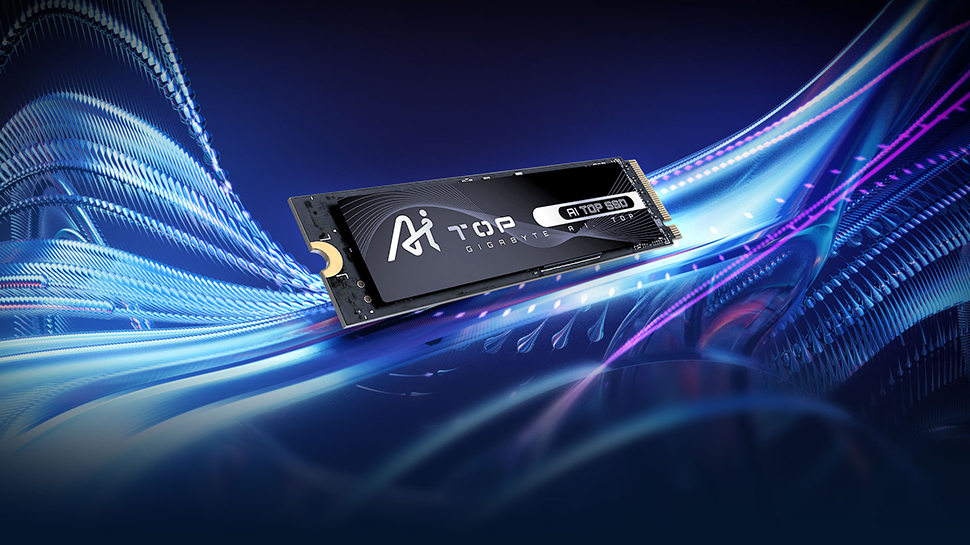Gigabyte has launched its AI TOP 100E series of SSDs specifically designed for high-endurance tasks such as AI training.
The new SSDs are available in 1TB and 2TB capacities and come housed in a standard M.2 2280 form factor.
What makes them stand out from the competition is their extraordinary endurance ratings. Gigabyte says the 2TB model offers up to 219,000 TBW (Terabytes Written), a figure that is significantly higher than you’d expect from typical consumer SSDs. The mean time between failure (MTBF) is rated as 1.6 million hours.
AI TOP utility
AI TOP 100E uses the PCIe 4.0×4, NVMe 1.4 interface, so it won’t win any performance races, especially not when compared to newer PCIe 5.0 drives, but it’s fast enough. The 1TB SSD offers sequential read speeds up to 7,200MB/s and write speeds up to 6,500MB/s, slightly outperforming the 2TB model (7000MB/s reads, 5900MB/s writes). So essentially, based on the figures it’s provided, Gigabyte is saying the 2TB model can write 219,000,000GB at 5.9 GB/s in 37,118,644 seconds, or approximately 1.18 years. That’s quite a claim.
Gigabyte hasn’t detailed how it achieves its enhanced durability, nor specified the type of 3D NAND used, but the drive supports exceptionally high levels of data write operations, rated at 60 drive writes per day (DWPD).
Due to their limited capacity and high costs, VRAM and system DRAM often become bottlenecks when training an AI models. The AI TOP 100E SSD does come with a “AI TOP” utility which Gigabyte says will let users “offload the processing of large datasets from VRAM or DRAM to the AI TOP 100E SSD, effectively enlarging your memory pool and upgrading the capability to fine-tune large AI models. This approach enhances performance and significantly lowers the total cost of ownership (TCO), with the AI TOP 100E SSD emerging as the most cost-effective option per gigabyte compared to VRAM and system DRAM.”
While specific pricing and availability details have yet to be announced, the SSD comes with a five-year limited warranty or is guaranteed for 109,500 TBW (1TB model) or 219,000 TBW (2TB), whichever comes first.
More from TechRadar Pro



+ There are no comments
Add yours